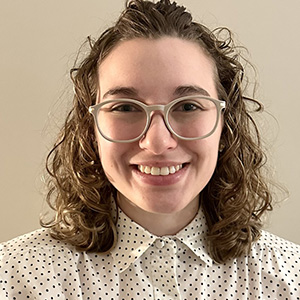Meet the 2023 Sewer scholarship winners
The American Society for Biochemistry and Molecular Biology is pleased to announce the 2023 recipients of the Marion B. Sewer Distinguished Scholarship for Undergraduates.
The ASBMB’s Maximizing Access Committee, formerly the Minority Affairs Committee, created this award in 2016 to support undergraduate students who demonstrate an interest in the fields of biochemistry and molecular biology and who enhance the diversity of science. Thanks in part to a generous donation from New England Biolabs, the ASBMB is awarding ten $2,000 scholarships that will be applied to undergraduate tuition costs.
The 2023 scholarships went to Rachel Rivera, Michelle Wambui, Omar Afifi, Hannah Barsouk, Kevin Li, Diego Pomales Matos, Antonio Rivera, Dabne Herrera Guerra, Sangita Chakraborty and Sophie Anderson.
The award honors Marion B. Sewer, who died in 2016 at age 43. Sewer was a principal investigator on projects devoted to increasing participation among historically underrepresented groups and furthering student training. Within the ASBMB, she organized the MAC’s Interactive Mentoring Activities for Grantsmanship Enhancement workshop for postdoctoral fellows and early career scientists, which addresses disparities in scientists’ ability to secure federal research grants. She also wrote about issues that historically underrepresented scientists face, such as impostor syndrome.
Here, the 10 recipients of the 2023 Sewer scholarship describe their personal goals and how they promote diversity. Their statements have been edited.
Rachel Rivera, Yale University
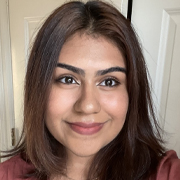
Rivera is a third-year student, majoring in biophysics and biochemistry with a concentration in chemical biology. After graduating, she intends to pursue an M.D./Ph.D., specializing in cardiology. She is interested in investigating the relationship between gene regulation and hypertension.
As a physician-scientist, Rivera hopes to ensure that people of color feel supported in navigating the medical system, making medicine and science more accessible. She is also passionate about diversifying STEM spaces, through STEM educational curricula, and bringing more minority students into higher education.
Michelle Wambui, Oregon State University
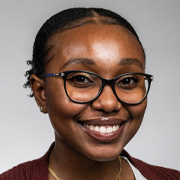
After gaining experience in both undergraduate research and clinical work, Wambui’s career goal is to become a clinician-scientist by pursuing an M.D./Ph.D. program. After graduating with a degree in biochemistry and molecular biology, she plans to apply to the National Institutes of Health Medical Research Scholars Program.
Wambui’s experiences as a black female student and immigrant have shaped her core values and continue to be a source of inspiration. She values community service and is committed to diversifying science by advocating for the needs of and amplifying the voices of underrepresented students like herself.
Omar Afifi, College of the Holy Cross
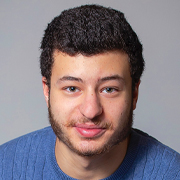
A passion for science, art and helping people inspires Afifi to seek a career in health care. He found these interests through involvement in his college where he pursues organic chemistry research, volunteers in the Worcester community and organizes campus events with various clubs.
After graduating with a chemistry degree, Afifi plans to pursue dental school with the hope of being able to make people feel more confident in their smiles and improve their overall health. As an aspiring dentist, Afifi’s goal is to increase access to equitable oral care and bridge the gap between systemic and oral health.
Hannah Barsouk, Yale University
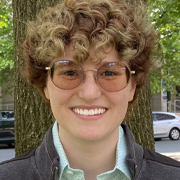
Barsouk is pursuing a joint bachelor’s/master’s degree in biophysics and biochemistry with research interests in molecular evolution and the diverse functions of noncoding RNAs. As a first-generation Ukrainian American and public school alum, they aim to give underrepresented students and students with challenging life experiences, including displaced international students, opportunities to fall in love with research and the sciences.
Barsouk has served as a teaching intern and volunteered for a mental health hotline for STEM students with marginalized identities. As a gender-nonconforming biochemist, Barsouk hopes to make academia more accessible, while pursuing career goals of research, education and outreach.
Kevin Li, Emory University
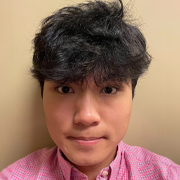
Li is a third-year student studying chemistry and comparative literature. After college, he plans to expand on his current research in breast cancer immunotherapy and tumor immunology by pursuing an M.D./Ph.D. in cancer biology while exploring other areas of passion such as pedagogy and diversity, specifically uprooting the stigmatization of minorities in the hard sciences as a dissuading factor from joining the field.
Li conducts research in Yong Wan’s laboratory in the Department of Pharmacology and Chemical Biology, leads the Club Swim Team as captain and serves as a first-year orientation leader.Diego Pomales Matos, University of Puerto Rico, Río Piedras
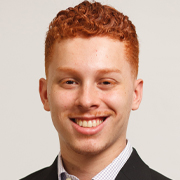
After completing a bachelor’s degree in cellular and molecular biology, Pomales Matos plans to pursue a Ph.D. in biochemistry and molecular biology, and to continue exploring mechanisms of disease-associated genetic variation and the role race and ethnicity play in their occurrence and frequency.
Pomales Matos aims to engage in efforts that will result in beneficial translational impacts, especially in underprivileged, minoritized communities and to sustain the advocacy of his mentors to diversify the scientific community by introducing underrepresented students to research. He will stay committed to the mission of advancing and diversifying science through his graduate studies and beyond.
Antonio Rivera, Wesleyan University
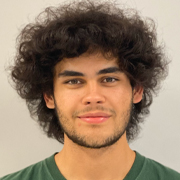
Rivera is a molecular biology and biochemistry and science in society double major. He plans to continue conducting undergraduate research, which will lead to his goal of completing a Ph.D. in biochemistry.
Rivera plans to enter industry and integrate inclusion of underrepresented communities into the private sector of life sciences. He hopes to become a professor after spending time in industry so he can be a mentor to students from underrepresented groups as they navigate higher education and private industry.
Dabne Herrera Guerra, University of Rochester
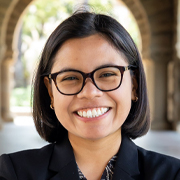
After completing her undergraduate studies, Herrera Guerra plans to pursue an M.D./Ph.D. with a Ph.D. concentration in biochemistry and biophysics. She hopes to simultaneously pursue a medical residency in neurosurgery and complete her postdoctoral training. Her research interests are focused on RNA-guided gene regulation, and she hopes to develop a device using microfluidics for early detection of diseases and other medical conditions.
She was awarded an NIH Undergraduate Scholarship and plans to devote her life to research and to helping others by contributing to the advancement of science and bringing solutions to complex science problems.
Sangita Chakraborty, City University of New York – Hunter College
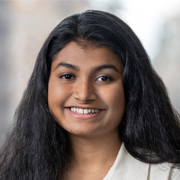
After graduating with a double major in biological sciences and interdisciplinary studies, Chakraborty intends to pursue an M.D./Ph.D. program in hopes of leading her own research group and helping empower future generations of scientists. By studying the molecular and cellular principles governing stem cell biology, she hopes to develop therapies targeting difficult-to-treat cancers.
Chakraborty aspires to make a difference in the lives of patients, especially in marginalized communities. She is passionate about advocating for diversity, equity and inclusion within STEM and aims to mentor and train the next generation of scientists in the transformative manner of her own mentors.
Sophie Anderson, Vassar College
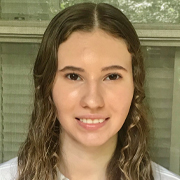
Anderson aims to become a physician-scientist and pursue a career in pediatric oncology research. After witnessing the life-saving value of timely medical treatment and intervention after her father’s late-stage cancer diagnosis and her volunteer work with pediatric patients through Project Sunshine, she wants to contribute to scientific advancements with the goal of discovering improved methods of disease treatment and prevention.
Anderson is also passionate about facilitating greater diversity, access and inclusion in the sciences. After graduation, she will complete an accelerated master’s in public health at Columbia University during her gap year before applying to M.D./Ph.D. programs.
How to apply
Applications for the 2024 Marion B. Sewer Distinguished Scholarship for Undergraduates will open in February. The deadline is May 31.
To apply, you must be an ASBMB member at the time of your application and submit an application using the online portal. More information about the scholarship and eligibility requirements can be found here.
Enjoy reading ASBMB Today?
Become a member to receive the print edition four times a year and the digital edition monthly.
Learn moreGet the latest from ASBMB Today
Enter your email address, and we’ll send you a weekly email with recent articles, interviews and more.
Latest in People
People highlights or most popular articles

Embrace your neurodivergence and flourish in college
This guide offers practical advice on setting yourself up for success — learn how to leverage campus resources, work with professors and embrace your strengths.

Survival tools for a neurodivergent brain in academia
Working in academia is hard, and being neurodivergent makes it harder. Here are a few tools that may help, from a Ph.D. student with ADHD.

Quieting the static: Building inclusive STEM classrooms
Christin Monroe, an assistant professor of chemistry at Landmark College, offers practical tips to help educators make their classrooms more accessible to neurodivergent scientists.

Hidden strengths of an autistic scientist
Navigating the world of scientific research as an autistic scientist comes with unique challenges —microaggressions, communication hurdles and the constant pressure to conform to social norms, postbaccalaureate student Taylor Stolberg writes.

Richard Silverman to speak at ASBMB 2025
Richard Silverman and Melissa Moore are the featured speakers at the ASBMB annual meeting to be held April 12-15 in Chicago.

Women’s History Month: Educating and inspiring generations
Through early classroom experiences, undergraduate education and advanced research training, women leaders are shaping a more inclusive and supportive scientific community.

